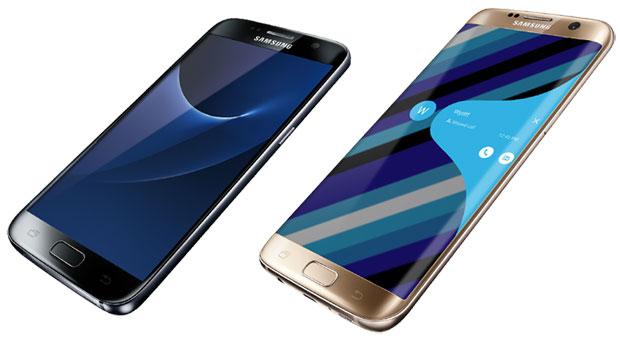Reviews of the Samsung Galaxy S7 and S7 edge came out Tuesday, and they were overwhelmingly positive.
“Head of the Smartphone Class,” concluded Geoffrey Fowler in The Wall Street Journal.
“On the edge of perfection,” summed up Dan Seifert for The Verge.
“Inching Toward Perfection,” suggested Darren Orf on Gizmodo.
Samsung last month introduced the S7 line at the Mobile World Congress in Barcelona, and “there was a lot of talk about how unimpressed folks were during the introduction,” recalled Wayne Lam, a principal analyst at IHS Technology.
Still, “I’ve been really impressed at the added design improvements Samsung has made with the S7,” he told TechNewsWorld.
What Reviewers Like About It
The S7 camera scored high with reviewers.
It beats the iPhone 6s Plus “in every low-light situation I’ve tested,” Fowler enthused. The 12-MP camera is lower resolution than its S6 counterpart, but each pixel can capture 95 percent more light.
Samsung’s camera app “is one of the best available for Android,” The Verge’s Seifert wrote. He liked the camera’s launch speed, and said the camera “produced brighter, sharper images than the iPhone 6s Plus and was faster to autofocus, especially in poor lighting.”
The S7 screen “is a stunner, packing in more than three times as many pixels as the iPhone 6s,” Fowler wrote. “And its blazing fast processor is well-suited for the new world of virtual reality.”
The S7’s SD card slot also won kudos, as did the return of the water-resistant capability, which was available on the Galaxy S5 but was removed from the S6.
Battery life — always a problem for Samsung smartphones — has improved considerably, a huge plus.
Reviewers also liked the S7’s design, look and feel.
“The past several versions of the Galaxy S series left something of a bitter taste in users’ mouths for multiple reasons,” remarked Ramon Llamas, a research manager at IDC. “What the S7 line does, and does smartly, is it comes back to the basics and does the basics well.”
Samsung is “hitting the right notes with improved battery life, external storage capacity and the quality of the camera, he told TechNewsWorld. “At the end of the day, you want the phone to work — and all the bells and whistles don’t matter otherwise.”
What Bugged the Reviewers
The “glacial pace” at which TouchWiz receives official Android updates “continues to make it difficult to whole-heartedly recommend software that will a.) be late to update its device with the latest build of Android and b.) not even implement some of Android’s best features, like adaptable storage,” noted Gizmodo’s Orf. It’s not a deal breaker overall for the S7, but “definitely a checkmark in the ‘cons’ column.”
The S7 doesn’t allow the use of third-party apps, including some of the built-in Android apps for Always On notification, he pointed out. Also, it “can’t quite match the load speeds of iOS” when it comes to opening big apps and detailed documents.
Carrier bloatware is another issue. Verizon adds 13 apps, for example. the phone Seifert tested had two email, two photo and two text-messaging apps; three music players; two voice control systems; and two app stores. The apps can be disabled but not entirely removed.
The edge feature that gives the “Galaxy S7 edge” its name doesn’t feel necessary, Orf said. “My home screen is already a shortcut to the apps I use most. I don’t really need a shortcut on top of a shortcut.”
No. 1 With a Bullet?
Samsung is “taking another page out of Apple’s playbook,” IHS’ Lam pointed out, with the S7 being “a similar product strategy to the iPhone 6 and 6s iterations. The S6 “was a brand new design philosophy and the S7 a further refinement.”
However, the iPhone “is still very much the leader and in demand,” maintained Susan Schreiner, an analyst at C4 Trends.
That said, the S7 appears to have been optimized for Samsung’s mobile Gear VR ecosystem, she told TechNewsWorld. “We expect that the Gear 360 camera [will] let users finesse VR content creation and limited editing on the device.”






















































